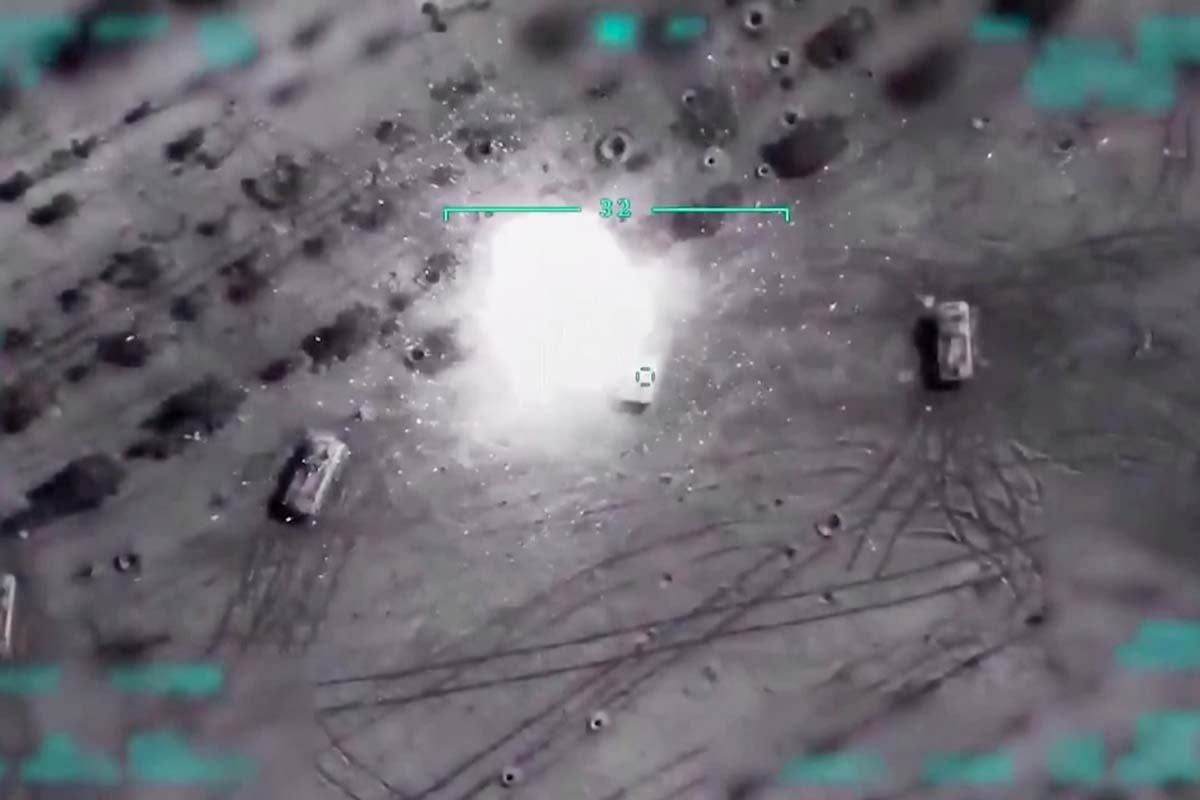Russia ready for dialogue with Ukraine: Kremlin
Russian President Vladimir Putin has confirmed his readiness for dialogue with Ukraine, and that an aborted 2022 peace deal could serve as the basis for resuming the negotiation,
The shadow boxing between Russia and Turkey has graduated to shooting.

An image grab taken from a video released on March 1, 2020, by the Turkish Defence Ministry shows an airstrike by the Turkish military on Syrian regime positions. Syria's army downed a Turkish drone over northwest Syria after it threatened "enemy" aircraft violating its airspace over deadly Turkish drone strikes, state media said. State news agency SANA said the unmanned aircraft was shot down near the town of Saraqeb, publishing footage of the alleged plane tumbling down from the skies in flames. (Handout / AFP / TURKISH DEFENCE MINISTRY)
The world has been kept guessing about what transpired through the ether when the Turkish President, Recep Tayyip Erdogan, called his Russian counterpart, Vladimir Putin, on Friday. The interaction comes at a critical juncture, indeed a day after Syrian airstrikes killed 33 Turkish troops. The blitz has ratcheted up tension between Ankara and Moscow, which backs the Assad regime.
The shadow boxing between Russia and Turkey has graduated to shooting. Both sides are in a standoff from which neither can afford to back down. Developments are bound to have profound implications for both countries, and potentially far beyond. More importantly, the next moves will define the ultimate stages of the Syrian war and determine the fate of up to 3 million desperate people who have been trapped between a Russian-led onslaught and a Turkish pushback.
For close to a decade, the powerplay has led to suffering without a recent parallel anywhere in the world. It has also exposed the thresholds at which Turkey ~ a backer of the Syrian opposition ~ and Russia, a resolute supporter of the likes of Bashar al-Assad, are prepared to operate. His relentless repression has been somewhat overshadowed by the trilateral powerplay between Syria, Russia and Turkey. After the airstrike in the town of Boulian, Turkish drones obliterated Syrian positions throughout Idlib, just as their artillery had been doing in the weeks before it.
Advertisement
In Ankara’s reckoning, the airstrikes carried out on its troops during that time are best avenged by targeting Russia’s weaker proxy, the national army. Turkey, a Nato power, could conceivably invoke Article 5 of the Nato pact, which would compel other member states to come to its defence. Both sides could do without the relationship being tested. President Erdogan is not exactly inclined to pursue a Nato route and has instead threatened Europe with a flow of Syrian refugees being held back by a border wall along its southern frontier.
Another exodus from Turkey, like the huge numbers that went to central Europe in 2015, would be opposed by European leaders and is powerful leverage for Turkey. All the protagonists are mired in the Syrian war. Even as Russia and Turkey engage deeper in Idlib, their endgames remain poorly defined. President Putin seems determined to finish the war at all costs, using the power of his air force to compel a ceasefire and then hand over the smouldering ruins to a puppet leader whose strings are pulled by Moscow.
At another remove, Turkey’s interests in Syria have been less clear. The trilateral game theory in Syria is only just evolving. The endgame is fogbound.
Advertisement